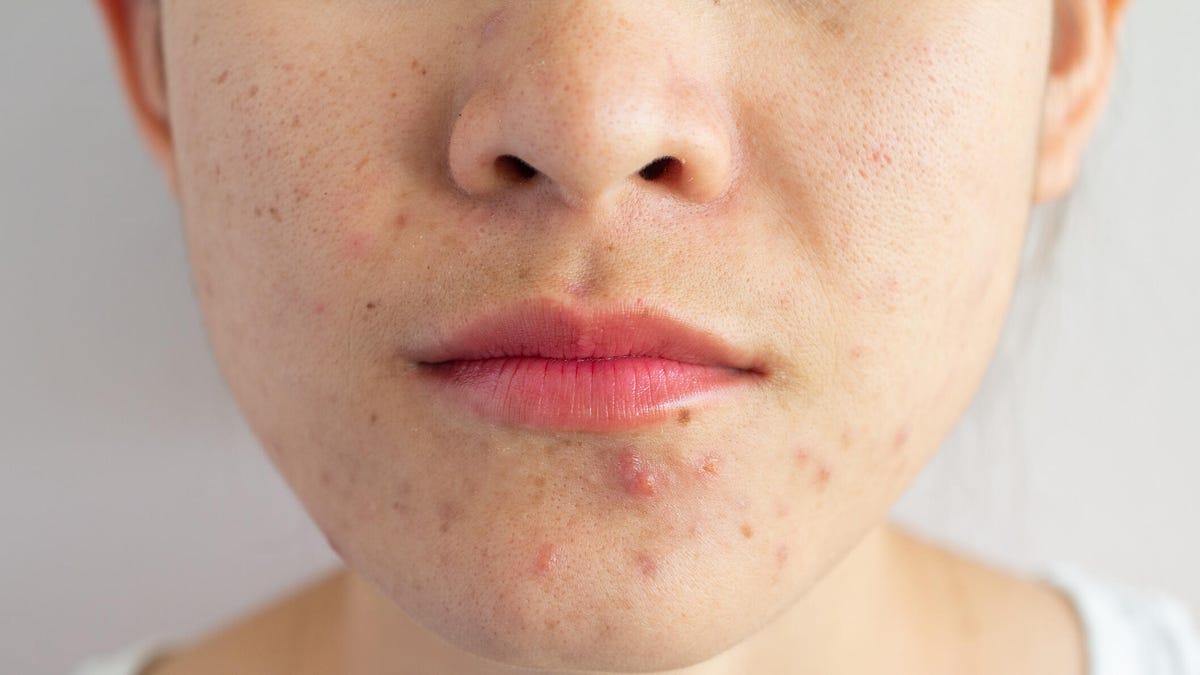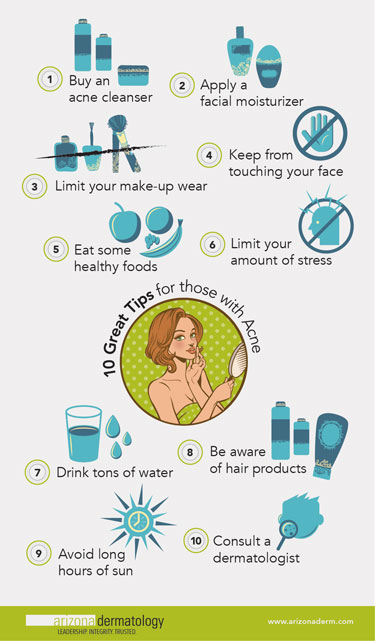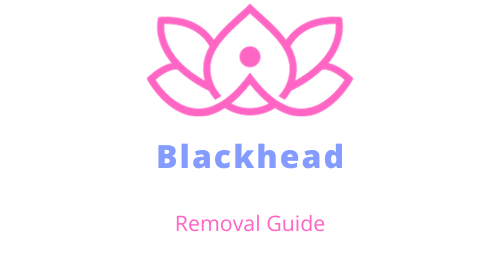The best way to clear acne is by maintaining a consistent skincare routine and consulting a dermatologist. Over-the-counter treatments with benzoyl peroxide or salicylic acid can also be effective.
Battling acne can feel like an uphill fight, but with the right strategies, clearer skin is attainable. Acne, a condition that affects millions, can be caused by hormonal changes, stress, and external environmental factors. Establishing a daily skincare regimen that includes cleansing, exfoliating, and moisturizing is essential.
Many find success using products designed to combat acne’s primary causes—excess oil and bacteria. For persistent cases, seeking professional advice from a dermatologist can lead to personalized treatments, which may include prescription medications. It’s crucial to avoid picking or squeezing pimples, which can exacerbate the issue. Patience and consistency are your allies; as most remedies take time to show results, staying the course is key to achieving long-term improvement in your skin’s health.

Credit: www.reequil.com
The Acne Conundrum
Acne troubles individuals of all ages, often causing discomfort and knocking confidence. Understanding acne is the first step towards clear skin. Let’s dive into the factors that contribute to acne and debunk common myths.
Factors Contributing To Acne
Hormonal changes, diet, stress, and improper skincare can lead to acne. It’s not just about oily skin; various elements play a role. Here’s a breakdown:
- Hormones: Teen years or pregnancy can spike hormone levels, causing acne.
- Diet: Sugary and dairy-heavy foods might worsen acne for some people.
- Stress: It can increase cortisol, a hormone that may lead to more acne.
- Skincare: Using wrong products can clog pores and trigger breakouts.
Common Myths And Misconceptions
Many believe chocolate or greasy food cause acne. This isn’t entirely true. Here are some myths:
| Myth | Reality |
|---|---|
| Chocolate causes acne. | No direct link, but watch out for sugar content. |
| Washing face more clears acne. | Overwashing can irritate skin, making acne worse. |
| Acne is just a teenage issue. | Acne can affect adults too, especially women. |
Remember, each person’s skin is unique. What works for one might not work for another.
Skin Type Matters
Clearing acne starts with understanding your unique skin. Skin type greatly influences which treatments work best. From dry to oily, each skin type requires a different approach. This means the best way to clear acne involves personalization. Let’s explore how to identify your skin type and tailor your skincare routine for clear, healthy skin.
Identifying Your Skin Type
To find the right acne solution, first, know your skin. A simple method is the bare-faced test. Gently cleanse your face and wait for an hour. Then, observe how your skin feels. Use these pointers:
- Dry skin feels tight and may flake.
- Oily skin looks shiny and feels greasy.
- Combination skin shows oiliness in the T-zone.
- Normal skin is neither too dry nor too oily.
- Sensitive skin may sting or burn after product use.
Tailored Skincare For Each Type
Once you know your skin type, select products made for it. Your acne-clearing arsenal should respect your skin’s needs:
| Skin Type | Cleanser | Moisturizer | Treatment |
|---|---|---|---|
| Dry Skin | Hydrating, creamy | Rich, emollient | Gentle exfoliants |
| Oily Skin | Foaming, oil-free | Light, oil-controlling | Salicylic acid |
| Combination Skin | Balancing | Medium-weight | Zone-specific treatments |
| Normal Skin | Gentle, non-drying | Lightweight | Preventive care |
| Sensitive Skin | Soft, fragrance-free | Soothing, hypoallergenic | Minimal ingredients |
Selecting the right products ensures your skin stays balanced. It also prevents further irritation. Stick to a routine that nourishes and protects. Your skin will thank you with a clearer complexion.
Daily Skincare Regimen
Fighting acne begins with a solid daily skincare regimen. This daily plan helps keep skin clean, balanced, and free from acne-causing bacteria. Consistency is key. Stick to your routine every morning and night for the best results. Let’s dive into the essential steps and product selection tips for clear skin.
Essential Steps For Clear Skin
- Cleanse gently: Start and end your day by washing your face with a gentle cleanser.
- Exfoliate: Use a mild exfoliant twice a week to remove dead skin cells.
- Treat: Apply acne-fighting treatments that contain ingredients like salicylic acid or benzoyl peroxide.
- Moisturize: Keep your skin hydrated with a non-comedogenic moisturizer.
- Protect: Use sunscreen every morning to protect your skin from harmful UV rays.
Product Selection Tips
- Know your skin type: Choose products designed for oily, dry, or combination skin.
- Look for non-comedogenic: These products won’t clog your pores.
- Check the ingredients: Go for products with proven acne-fighting components.
- Avoid irritants: Stay away from alcohol-based products that can dry out your skin.
- Read reviews: See what others with acne-prone skin say about the products.

Credit: www.cnet.com
Diet And Acne Connection
Clear skin starts from the inside out. What you eat can play a vital role in fighting off acne. Understanding the link between diet and skin health is key. Certain foods can trigger breakouts, while others can help heal your skin. Let’s dive into which foods to embrace and which to avoid to keep acne at bay.
Foods To Favor And Avoid
Some foods can increase inflammation and cause acne flare-ups. Here’s a quick guide:
| Foods to Favor | Foods to Avoid |
|---|---|
|
|
Eating a balanced diet rich in antioxidants and omega-3 fatty acids can help reduce inflammation and improve acne symptoms.
Hydration And Skin Health
Drinking water is crucial for healthy skin. It helps to flush out toxins that can lead to acne. Aim for at least 8 glasses of water a day. This will keep your skin hydrated and help maintain its elasticity.
- Carry a water bottle with you all day.
- Include water-rich foods like cucumbers and watermelon in your diet.
- Avoid sugary drinks that can aggravate acne.
Remember, a consistent skincare routine and balanced diet go hand in hand for clear skin.
Professional Treatments
Fighting acne can sometimes feel like a battle. Over-the-counter products may not always do the trick. That’s when professional treatments come into play. These treatments are powerful and target acne at its source. They offer solutions that are not available on store shelves. Below, we’ll explore when it’s time to consult a dermatologist and the popular in-clinic procedures they might recommend.
When To See A Dermatologist
Don’t wait too long to seek professional help. If acne persists or worsens, it’s time to see a dermatologist. Signs you need an expert include:
- Over-the-counter treatments are not working
- Acne is causing scars or dark spots
- You feel self-conscious or stressed about your skin
Early intervention can prevent long-term damage and clear your skin faster.
Popular In-clinic Procedures
Several procedures can help clear acne. Your dermatologist will recommend the best one based on your skin type and acne severity. Some of the most effective treatments include:
| Procedure | Description | Benefits |
|---|---|---|
| Chemical Peels | Application of a solution to exfoliate the skin | Reduces scars, kills bacteria, and promotes new skin growth |
| Laser Therapy | Uses light to target and destroy acne bacteria | Minimizes oil production and reduces inflammation |
| Microdermabrasion | Gentle skin exfoliation to remove dead skin cells | Unclogs pores and smoothens skin texture |
Remember, these treatments should be part of a comprehensive skin care plan. Consistency and follow-up care are key to achieving clear, healthy skin.
Over-the-counter Vs. Prescription Solutions
When it comes to battling acne, knowing whether to choose over-the-counter (OTC) products or seek prescription medications is key. Each option offers distinct benefits and uses. Understanding the differences can pave the way to clearer skin.
Effective Otc Products
OTC acne solutions are widely available and can be very effective for mild to moderate acne. Look for products containing these ingredients:
- Salicylic Acid – unclogs pores and reduces swelling and redness.
- Benzoyl Peroxide – kills bacteria and removes excess oil.
- Alpha Hydroxy Acids (AHAs) – helps remove dead skin cells and prevent clogged pores.
Many OTC products come in the form of cleansers, creams, and spot treatments. Apply them as directed for the best results.
Understanding Prescription Medications
Prescription acne treatments often have stronger ingredients than OTC options. They are necessary when acne is severe or doesn’t respond to OTC products. Common prescriptions include:
| Medication Type | Benefits |
|---|---|
| Topical Retinoids | Clears pores and reduces fine lines. |
| Antibiotics | Fights bacteria and reduces inflammation. |
| Isotretinoin | Tackles severe acne, reducing oil gland size. |
Prescription solutions often require a dermatologist’s guidance. Follow their instructions closely.
Natural Remedies And Alternatives
Natural remedies and alternatives offer a gentle approach to clearing acne. Many individuals turn to these methods to avoid harsh chemicals. These solutions can provide relief and promote healthier skin.
Herbal And Homeopathic Options
- Tea Tree Oil: Known for its antibacterial properties, apply it topically to affected areas.
- Green Tea Extract: Use as a lotion or drink tea to reduce inflammation.
- Aloe Vera: Soothes the skin and can be applied directly to the acne.
- Witch Hazel: Acts as an astringent to cleanse skin and reduce oil.
Herbal supplements like burdock root or milk thistle support skin health from within.
Lifestyle Changes For Better Skin
Making small tweaks to daily habits can make a big difference.
| Change | Benefit |
|---|---|
| Hydrate: Drink more water. | Flushes out toxins and maintains moisture balance. |
| Diet: Eat more fruits, vegetables, and whole grains. | Provides essential nutrients for skin repair. |
| Sleep: Aim for 7-9 hours per night. | Allows skin to heal and rejuvenate. |
| Stress Management: Practice relaxation techniques. | Reduces hormone fluctuations that can cause acne. |

Credit: arizonaderm.com
Maintaining Clear Skin
Clear skin is a sign of good health and confidence. Keeping acne at bay requires daily care and smart lifestyle choices. Understand the right habits to maintain a blemish-free complexion.
Preventative Skincare Habits
Consistent routines set the stage for clear skin. Start with these basics:
- Cleanse your face twice a day to remove dirt and oil.
- Use oil-free and non-comedogenic products to avoid pore blockage.
- Hydrate with a gentle moisturizer suited for your skin type.
- Never sleep with makeup on, as it can cause breakouts.
- Exfoliate weekly to shed dead skin cells.
These simple steps can significantly reduce acne flare-ups.
Long-term Skincare Strategies
Maintaining clear skin goes beyond daily habits. Embrace these strategies for lasting results:
| Strategy | Benefits |
|---|---|
| Healthy Diet | Foods low in sugar and high in nutrients can improve skin health. |
| Regular Exercise | Increases blood flow and helps nourish skin cells. |
| Stress Management | Reduces hormone fluctuations that contribute to acne. |
| Sleep | Adequate rest allows the skin to repair itself naturally. |
| Sun Protection | Prevents sun damage that can exacerbate acne scars. |
Adopt these long-term strategies for skin that stays clear and vibrant.
Myth Busting And Facts
Welcome to the ‘Myth Busting and Facts’ portion of our blog post. Acne is a widespread concern, leading to a minefield of myths and half-truths. We aim to clear up the confusion by separating the fiction from the facts. Understanding what truly works for acne care is crucial. Let’s start debunking some common acne myths and establish what the real facts are.
Debunking Acne Myths
Many myths about acne cause unnecessary worry. It’s time to expose the truth.
- Eating chocolate causes acne: No direct link exists between chocolate and acne.
- Acne is just a teenage problem: Adults can also suffer from acne.
- Acne is contagious: You cannot catch acne from others.
- Washing your face more will clear acne: Over-washing can irritate the skin.
Real Facts About Acne Care
Let’s look at what science says about effective acne care.
| Fact | Description |
|---|---|
| Consistent Skincare Routine | A gentle cleanser and moisturizer can help manage acne. |
| Use of Non-Comedogenic Products | These products do not clog pores, reducing acne risk. |
| Seek Professional Help | Dermatologists can provide personalized acne treatment plans. |
| Medicated Treatments | Ingredients like benzoyl peroxide and salicylic acid can be effective. |
Success Stories And Inspiration
Success Stories and Inspiration can be a powerful motivator in the fight against acne. Real-life tales of transformation not only offer hope but also practical advice. These stories often highlight the emotional and physical journey individuals undergo to achieve clear skin. They celebrate personal victories while providing a roadmap for others striving for similar results. Let’s delve into some transformative skincare journeys and glean tips from those who’ve successfully navigated the path to clear, radiant skin.
Transformative Skincare Journeys
Every acne-clearing story starts with a struggle but ends with triumph. Real people, real results; these narratives often share a common thread of persistence and discovery. Each journey underscores the importance of finding a skincare routine that works for the individual. Here are some inspiring accounts:
- Jake’s Journey: Jake battled severe acne for years. He tried countless products with no luck. Finally, he discovered a routine that worked. His skin transformed over six months, proving patience pays off.
- Lisa’s Leap: Lisa’s adult acne seemed unbeatable until she focused on her diet and lifestyle. Clear skin followed her holistic approach, showcasing the power of inner health on outer beauty.
- Aaron’s Achievement: Aaron’s acne scars faded after he incorporated a targeted skincare regimen and professional treatments. His story highlights that scars from acne can also heal.
Tips From People Who’ve Cleared Their Acne
Gleaning wisdom from those who have already tackled acne can provide actionable steps for clear skin. Here are some top tips from acne victors:
- Consistency is Key: Stick to your routine daily, even when you don’t see immediate results.
- Hydration Helps: Drink plenty of water to flush out toxins and hydrate your skin.
- Gentle Over Aggressive: Use gentle cleansers and avoid harsh scrubbing, which can irritate skin.
- Seek Professional Advice: Dermatologists can offer personalized treatment plans and product recommendations.
- Patience and Positivity: Stay positive and be patient; skin healing takes time.
Frequently Asked Questions
How To Clear Up Acne Fast?
To quickly clear acne, wash your face twice daily with a gentle cleanser. Apply an over-the-counter benzoyl peroxide or salicylic acid treatment. Avoid picking or squeezing pimples. Use non-comedogenic makeup and skincare products. Consult a dermatologist for persistent acne.
What Kills Acne Completely?
There’s no one-size-fits-all solution to completely kill acne. Consistent skincare routines, prescription medications like retinoids and antibiotics, and professional dermatological treatments can effectively manage and reduce acne. Lifestyle changes and diet adjustments may also help.
What Clears Acne Asap?
To clear acne fast, use topical treatments with benzoyl peroxide or salicylic acid. Keep skin clean, avoid picking, and consider a dermatologist’s advice for severe cases.
How Do You Clear Your Face From Acne?
To clear acne from your face, consistently cleanse twice daily with a gentle, non-comedogenic cleanser. Apply over-the-counter treatments containing benzoyl peroxide or salicylic acid. Avoid picking or popping pimples. Keep your hair and hands clean to prevent additional bacteria on your skin.
Always moisturize with oil-free products.
Conclusion
Clearing acne effectively demands a tailored approach. Embrace a daily skincare routine and consult a dermatologist if needed. Remember, patience and consistency are key. By following the tips shared, you’ll be on the path to a clearer, healthier complexion. Start your journey to acne-free skin today!
